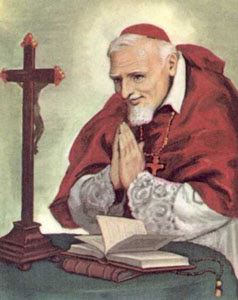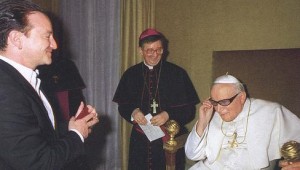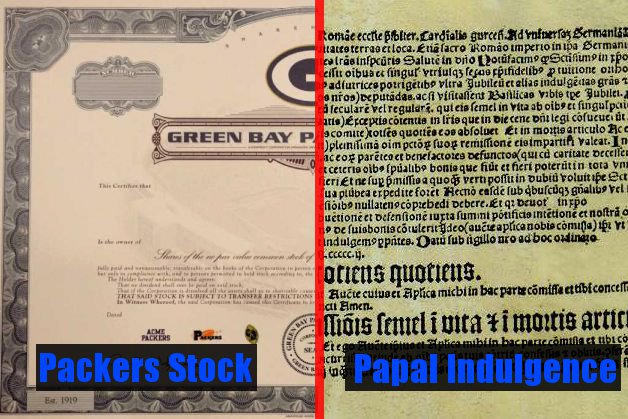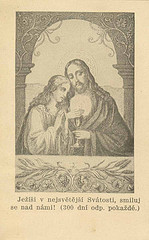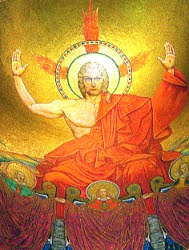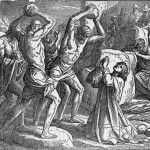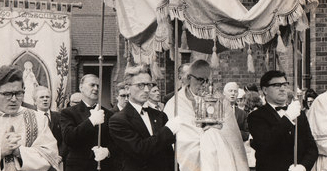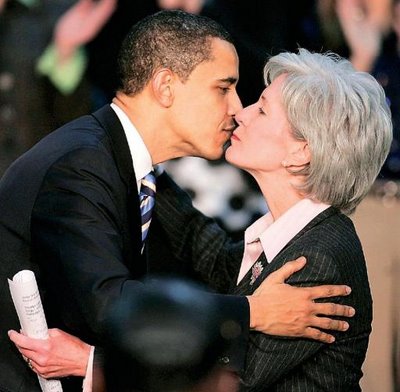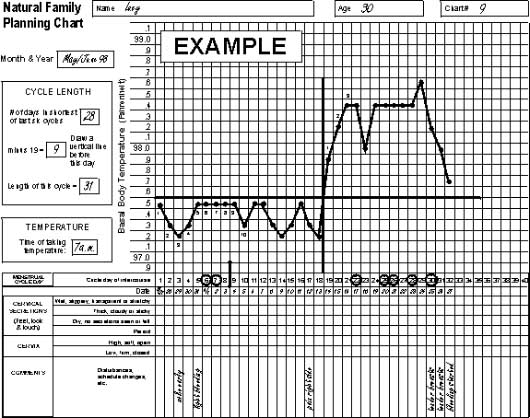Posts Tagged ‘Catholicism’
Peace of Jesus and Mary
The peace of Jesus is the peace of M ary
ary
as a piece of Mary would be the Person she’d carry.
For where would we be without her yes?
Still waiting for God to clean up our mess…
God chose her specific before all the ages
even though He didn’t say so on Biblical pages.
No one can deny that she must have been favored,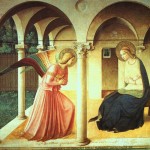
but there is some confusion about how hard she labored.
Was it hard for her to say yes to the messenger?
Does a healthy skepticism some how lessen her?
Or was it too simple, if she had no sin?
Was she playing a game in which she had no skin?
These questions and more are the basis for heresies.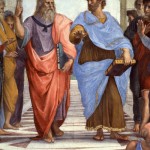
But a simpler one came out of the Pharisees.
Who was her Son and why did He care for these,
littlest ones whom He made His inheritees
and how was He different from His parodies
and should we give to each of His charities?
Jesus to Mary was Son, Spouse and Brother
Creator and Redeemer (although undercover)
Mary to Jesus was most truly a mama
but who is better in the thickest drama?
And whose heart could have more love in it
than the one we compare to the ark of the covenant?
For Jesus, to all, is Priest Prophet and King
but Mary’s the quiet voice whom He heard sing.
He gave us sweet Mary for our mother each
so that her peace is not out of our reach.
For although troubles do come into our hearts
she says listen to Jesus and do then your parts.
So as Christmas comes, think a little of Mary,
and a little of Hanna and Sarah who carry
the promise of children that they’d love to have had
and gave them away without appearing sad.
But remember too, the childless and the barren
and this Christmas, let them know that you’re carin’.
The peace of Mary is the Joy that she had
the Joy to the World who makes all nations glad.
Merry Christmas everyone!
An Amicable Separation?
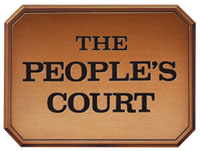
Is there such thing as a good divorce? That’s not the subject of this month’s Eschewmenical blog. This month we’re talking about the separation of church and state. But, in an age when corporations are people it’s fair to consider the two parties (Church and State) and consider the grounds of their divorce.
- The Petitioner
- The State:
- Secular, profane, worldly
- Bound by human laws
- Highest calling is reason
- Prefers a scientific understanding of the universe
- The Respondent
- The (Catholic) Church:
- One, holy, catholic, apostolic
- Bound by eternal and divine laws
- Highest calling is spiritual truth
- Understands the universe in the light of faith and reason
Even though the two seem at cross purposes, as is the case with so many divorces, after cross examining the respondent I found that She wasn’t quite ready to break off the commitment:

Nor can We predict happier times for religion and government from the plans of those who desire vehemently to separate the Church from the state, and to break the mutual concord between temporal authority and the priesthood. It is certain that that concord which always was favorable and beneficial for the sacred and the civil order is feared by the shameless lovers of liberty.
Pope Gregory XVI – Mirari Vos – 1832
180 yeas ago and only 40 years after the beginning of the first major secular revolt against Christianity, the Holy Father still wasn’t prepared to let go. He actually thought that a relationship could be fruitful and useful for preventing things that are detrimental to church and state such as breaking the commandments.
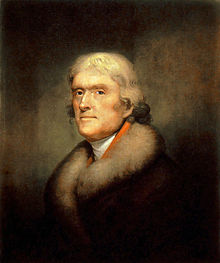
Believing with you that religion is a matter which lies solely between Man & his God, that he owes account to none other for his faith or his worship, that the legitimate powers of government reach actions only, & not opinions, I contemplate with sovereign reverence that act of the whole American people which declared that their legislature should “make no law respecting an establishment of religion, or prohibiting the free exercise thereof,” thus building a wall of separation between Church & State.
Thomas Jefferson – Letter to Danbury Baptists 1802
But Mr. Jefferson doesn’t desire that the relationship should continue. He’d rather see religion just as the personal relationship between man and God. And that may be well and good for Protestants and deists, but we Catholics would rather love God in a loud and boisterous manner with timbrels, harps and good stuff like that. We even invite God’s mother to our celebrations and all their friends the Saints and Angels. So, because of a few key doctrine of the Catholic Church, embodied since time immemorial in the Apostles Creed a mutual separation is not possible. The Church doesn’t want to settle for visitation rights only on Sundays and Holy Days of Obligation, the Church wants full custody of the souls of Her children.

Again, that it is not lawful for the State, any more than for the individual, either to disregard all religious duties or to hold in equal favour different kinds of religion; that the unrestrained freedom of thinking and of openly making known one’s thoughts is not inherent in the rights of citizens, and is by no means to be reckoned worthy of favour and support. In like manner it is to be understood that the Church no less than the State itself is a society perfect in its own nature and its own right, and that those who exercise sovereignty ought not so to act as to compel the Church to become subservient or subject to them, or to hamper her liberty in the management of her own affairs, or to despoil her in any way of the other privileges conferred upon her by Jesus Christ. In matters, however, of mixed jurisdiction, it is in the highest degree consonant to nature, as also to the designs of God, that so far from one of the powers separating itself from the other, or still less coming into conflict with it, complete harmony, such as is suited to the end for which each power exists, should be preserved between them.
Pope Leo XIII – Immortale Dei – 1885
The respondent seems to want some sort of reconciliation (albeit on her own terms), but the petitioner cites the troubling statement that free thought will be abolished and the rights of other religions will be trampled. Be this as it may, a desire for harmony is progress and any just judge would be inclined to find that the Church, who doesn’t desire that her children be split in two, should have a little more than joint custody. But, just when the judge was about to throw out the divorce and order 200 years of counseling, another American president wholly subverted the respondent’s argument and nearly irrevocably destroyed any hopes for a reunion.

I believe in an America where religious intolerance will someday end–where all men and all churches are treated as equal–where every man has the same right to attend or not attend the church of his choice–where there is no Catholic vote, no anti-Catholic vote, no bloc voting of any kind–and where Catholics, Protestants and Jews, at both the lay and pastoral level, will refrain from those attitudes of disdain and division which have so often marred their works in the past, and promote instead the American ideal of brotherhood.
John F. Kennedy – 1960 – Address to the Greater Houston Ministerial Association
And yet, we still have CatholicVote.org, so there must be some voices within the Church who don’t quite agree that Catholics aren’t supposed to vote a certain way. Well, maybe in 1960’s America there was an option who to vote for, but five years later Contraception would be wholly liberalized and largely because of that thirteen years later abortion would be legalized. In the 90’s the platform of the Democratic party in the USA would include making abortion safe, legal and rare. And more recently, just safe and legal.
So, not long after the judge of public opinion sided with my coreligionist John F. Kennedy, anyone who wanted to be Catholic in real life would have an even harder time doing so since the ideal was no longer to do so in a way that bothered anyone else. For instance, if in the closing arguments, some Pope said:

Marriage, then, is far from being the effect of chance or the result of the blind evolution of natural forces. It is in reality the wise and provident institution of God the Creator, whose purpose was to effect in man His loving design. As a consequence, husband and wife, through that mutual gift of themselves, which is specific and exclusive to them alone, develop that union of two persons in which they perfect one another, cooperating with God in the generation and rearing of new lives.
Pope Paul VI – 1962 – Humane Vitae
Those who argue for a strict separation would say, “You said God”, “you said exclusion”, “you denied an evolutionary principle” and the respondent wouldn’t even get to say what she didn’t say. The Catholic Church believes some things that it teaches (merely as a caretaker of certain self-evident wisdom) to be accessible to all mankind and some things it teaches to be only incumbent on its adherents, like the very next sentence of Humane Vitae, which no one is trying to legislate:
The marriage of those who have been baptized is, in addition, invested with the dignity of a sacramental sign of grace, for it represents the union of Christ and His Church.
ibid
So, someday the Catholic Church may have it’s true day in court and find common ground in the natural moral law. Maybe that’ll be judgement day, maybe sooner. But we need to get beyond a soundbite mentality and risk infinite repeats of Pope Benedict XVI’s Regensberg lecture and start making the hard reasonable arguments that win minds while saturating our arguments in the levity that wins hearts. If you need help forming a fun and rational argument, read Chesterton! If you have questions, ask them here!
Paine and Providence
I have now gone through the Bible, as a man would go through a wood with an axe on his shoulder, and fell trees. Here they lie; and the priests, if they can, may replant them. They may, perhaps, stick them in the ground, but the will never make them grow. -Thomas Paine, The Age of Reason
But a shoot shall sprout from the stump of Jesse, and from his roots a bud shall blossom. (Isaiah 1:11 NABRE)
It is curious, that Thomas Paine, in challenging the priests to replant the trees he felled by challenging the authority of the Bible, used a metaphor which reminds the reader of the very reason for their hope.
He culminates his argument by saying that since he has completed his entire refutation of scripture using scripture, the reader must come to the conclusion that the Bible is a malicious lie or an accidental lie. That’s an easy premise to buy, if you don’t have anything else to back up the Bible.
Whatever it is Paine thought was behind the authority of scripture he ascribes to St. Athanasius, sneering at the idea that the the books to compromise holy canon could be voted on. He leaves it up to us to complete his chortle, that the Holy Spirit would never act like that.
But how, gentle reader, does the Holy Spirit act?
Christ has no body now, but yours. No hands, no feet on earth, but yours. Yours are the eyes through which Christ looks compassion into the world. Yours are the feet with which Christ walks to do good. Yours are the hands with which Christ blesses the world. St. Teresa of Avila (1515-1582)
He acts through us! Even through our traditions of governance, be they monarchic, patristic or even democratic. Communism, libertarianism and plain old anarchy are certainly opposed to a Spirit working through an individual to better the world, in an ordered way, through compassion.
But there is one thing that I have never from my youth up been able to understand. I have never been able to understand where people got the idea that democracy was in some way opposed to tradition. It is obvious that tradition is only democracy extended through time. It is trusting to a consensus of common human voices rather than to some isolated or arbitrary record. The man who quotes some German historian against the tradition of the Catholic Church, for instance, is strictly appealing to aristocracy. He is appealing to the superiority of one expert against the awful authority of a mob. It is quite easy to see why a legend is treated, and ought to be treated, more respectfully than a book of history. The legend is generally made by the majority of people in the village, who are sane. The book is generally written by the one man in the village who is mad. Those who urge against tradition that men in the past were ignorant may go and urge it at the Carlton Club, along with the statement that voters in the slums are ignorant. It will not do for us. If we attach great importance to the opinion of ordinary men in great unanimity when we are dealing with daily matters, there is no reason why we should disregard it when we are dealing with history or fable. Tradition may be defined as an extension of the franchise. Tradition means giving votes to the most obscure of all classes, our ancestors. It is the democracy of the dead. Tradition refuses to submit to the small and arrogant oligarchy of those who merely happen to be walking about. All democrats object to men being disqualified by the accident of birth; tradition objects to their being disqualified by the accident of death. Democracy tells us not to neglect a good man’s opinion, even if he is our groom; tradition asks us not to neglect a good man’s opinion, even if he is our father. I, at any rate, cannot separate the two ideas of democracy and tradition; it seems evident to me that they are the same idea. We will have the dead at our councils. The ancient Greeks voted by stones; these shall vote by tombstones. It is all quite regular and official, for most tombstones, like most ballot papers, are marked with a cross. G.K. Chesterton – Orthodoxy – Chapter 4
Chesterton wrote that in 1908, 14 years before his reception into the Catholic Church. It is certainly about the small t traditions of man (like thanksgiving turkey) but I think one can as easily apply it to the big T Traditions of the Catholic Church (like the Eucharist). The Bible is like that as well. It’s a collection of promises made between God and those who would be His people.
When Jesus opened the scripture and preached He did so as one having an astonishing amount of authority (Matt 7:29). He bequeaths that authority to Peter (Matt 16:18) and Peter, after a little prompting, spreads the salvation around freely (Acts 11:17) but handed his office, with the keys still in it, to Linus.
The blessed apostles, then, having founded and built up the Church, committed into the hands of Linus the office of the episcopate. Of this Linus, Paul makes mention in the Epistles to Timothy. To him succeeded Anacletus; and after him, in the third place from the apostles, Clement was allotted the bishopric. – St. Irenaeus Against Heresies
Too bad that wasn’t in the Bible, eh… well, it’s certainly evidence of Sacred Tradition. To which the Catholic duly considers even with Scripture and the Magisterium (the teaching office of the Bishops). Tradition is the example Jesus set which the apostles followed. (CCC 83) The New Testament is evidence for Sacred Tradition, it should not be construed as evidence against it! All Scripture is useful and profitable, but Scripture alone only leaves a tank one third full sending one cruising to Heaven hoping to get there on fumes.
So, when the council of Nicea is mistakenly pointed to by Thomas Paine as the event wherein Early Christian Aristocrats blithely came to an agreement on sacred scripture, you can be sure, that even if this event did occur, that it would be a result of the authority bestowed on the apostles and their successors by Christ Himself. But, since the event didn’t happen, you should probably realize that either Paine’s work to thwart the authority of scripture is either a malicious lie or an accidental one.
I like to think it’s an accidental one and he was merely conforming to the spirit of his age.
Faith, Works, God’s the Guy with the Gun
To become a Saint, nothing more is needed than to gain all the indulgences we can. St. Alphonsus Marie Ligouri 1696-1787That quote is by my confirmation patron, St. Alphonsus Marie Ligouri. I chose him because I was a big Frank Zappa fan at the time and he seemed to be next best thing to St. Alphonso (of pancake breakfast fame). Choosing him, at the time, seemed to be the most naturally impious thing I could do. But, he did manage to have a lasting impression on me as his imprint, Ligouri Press, happens to publish the Catholic Catechism which I happened to notice one day in a second hand book store which I happened to purchase and read and quite naturally found myself agreeing with everything it said; I even agreed with the part about indulgences, which were one of the lightning rods of the Reformation:
What is an indulgence?
“An indulgence is a remission before God of the temporal punishment due to sins whose guilt has already been forgiven, which the faithful Christian who is duly disposed gains under certain prescribed conditions through the action of the Church which, as the minister of redemption, dispenses and applies with authority the treasury of the satisfactions of Christ and the saints.”
“An indulgence is partial or plenary according as it removes either part or all of the temporal punishment due to sin.” The faithful can gain indulgences for themselves or apply them to the dead.
CCC 1471
The topic of this month’s Eschewmenical query is Salvation and I aim to present an unadulterated Catholic view of the matter. I don’t aim to offend anyone, but this is one of the deeply divisive issues that we can’t exactly pretend don’t make or break our faiths, and I can’t much help it if I hold in antipathy the words of Martin Luther, who said, when justifying his addition of the word “alone” to his translation of the Bible that
If your papist wishes to make a great fuss about the word sola (alone), say this to him: “Dr. Martin Luther will have it so, and he says that a papist and a donkey are the same thing.”
That makes this papist cringe to think that the man who put the Luther in Lutheran couldn’t come up with a better argument than modus jerkface. I’d imagine Catholics have said some pretty rotten things about Protestants over the years, but at least our Popes attempt to write, if not act, in a demure fashion.
So, if we take it as a given that Martin Luther added “alone” to Romans 2:38 in his translation of the Bible, we certainly don’t see in these modern Protestant translations so why does anyone still think we’re saved by faith alone? Well, CARM has some good reasons. But, I’m not sure that any justification would be needed, if justification itself hadn’t been turned on it’s head by Luther by his insistence on faith alone in the first place.
Martin Luther clearly didn’t like indulgences, that was the start of his trouble. But, if you take everything about Catholicism and toss out indulgences, you still have the Catholic Church… For about 5-6 days, then the system runs out of capital and all hell breaks loose.
In a debased, and probably incorrect way, indulgences are spiritual stock. If the company goes bankrupt, stock certificates are not worth the paper they’re printed on. If one’s soul is not received in to purgatory or Heaven after death, then those indulgences can never be applied.
What Luther seemed to be against at first, the selling of indulgences, is – to me at least – more like what no sporting man from Wisconsin can be against. Purchased indulgences are to the medieval pious Catholic serf what Packers stock is to the modern secular football fan.
And, to illustrate my point, consider the benefits of each:
| Packers Stock | Papal Indulgence |
|---|---|
| Helps build new stadium | Helps build new church |
| Lasting memento of a seemingly pointless act | Lasting memento of a seemingly pious act |
| Better than paying more taxes for stadium upkeep | Better than paying more taxes for church upkeep |
| Probably more trouble than it’s worth to explain to the Bears fans | Definitely more trouble than it’s worth to defend to non-Catholics |
Today’s skeptic and yesterday’s reformer may have been against selling indulgences on principle. But, I think they gloss over how incredulous the medieval peasant would be about buying them. We peasants are, as a class, very tight with our money, but I think we would prefer to give it away, storing it where moths and bugs and stuff can’t get at it, than trade it for just a piece of paper. Purchasing indulgence must have been thought of as primarily alms giving and alms giving was one of the things mentioned in other books that got chucked by the reformation.
You will be storing up a goodly treasure for yourself against the day of adversity. For almsgiving delivers from death and keeps one from entering into Darkness. Tobit 4:8-10
As water quenches a flaming fire, so almsgiving atones for sins. Sirach 3:30
But one such quote (which just barely missed the chopping block), almost identical to what Tobias’s dad and Sirach’s son said was in Daniel:
Therefore, O king, may my advice be acceptable to you; atone for your sins by good deeds, and for your misdeeds by kindness to the poor; then your contentment will be long lasting.” Daniel 4:24
In any event, regardless of how useful I think selling indulgences was, and could yet be, the Church, in her wisdom has ceased to do so. She’s even cleaned up the lingo, as of 60 years ago, to make it so just plenary (total remission of punishment due to sin) and partial (partial remission of punishment) indulgences exist. Instead of:
- 50 days off purgatory for making the sign of the cross
- 100 days off purgatory for making the sign of the cross with Holy Water
- 200 days off purgatory for making the sign of the cross in a church with Holy Water
Nevertheless, these things still are partial indulgences, but there’s no need to be scrupulous about them any more. The mere existence of the Church’s teaching on indulgences assures one that good works one does to gain indulgences (whether one is aware of them or not) should never be in vain.
So much for works. Let’s concentrate on faith. Would it be wrong of me, as a Catholic, to say that it is faith in Jesus that saves us?
Nope, but that’s the beginning. But, like so many other beginnings, it’s really the most important part. We call it sanctifying grace; the grace brought on by Christ’s sacrifice which saves us. It’s not our doing, it’s not merely a result of our assent at Baptism, although that is then that it enters us forever. It is wholly beyond our comprehension, but it exists nevertheless.
Once baptized, the Christian enters a world where grace is necessary to move through life. Grace is spiritual grease.
Grace precedes, prepares and elicits our free response. CCCC 425
The freedom we gain through baptism is a freedom to be obedient to Christ. The freedom to follow the Law:
I will love You more than myself and myself only for Your sake; I will love all others in You and for You, as Your law of love commands; Imitation of Christ (Book 2 Chapter 5 Paragraph 6)
The New Law is mainly the same grace of the Holy Spirit which is given to believers in Christ. St. Thomas Aquinas
So, even when someone correctly interprets Galatians 2:16 and Romans 3:28 (which everyone seems to do) concerning justification through Faith vs Works of the Law. One can hardly say that for the Christian, to whom much has been revealed and much is expected, we are saved through works of the Law. Because our works are faith and our faith is works.
And to tie the point around to Catholicism, which is often criticized for adding too much work (Liturgy, by the way, is literally work of the people) to the requirements of the faithful, it is good to note that Catholic Church never claims to have discovered or created a more important commandment than “Love”.
But, in the end, it is God’s decision whether or not we shall be saved, not ours. Our knowledge of our faith can’t assure us a place in Heaven. Our knowledge of our good works can’t assure us of a place in Heaven. No amount of indulgences and no spiritual awareness can change that.
All we know is that the measure by which we measure will be measured out against us (Matt 7:2) and the heavenly house is very spacious (John 14:2). That it is better to be awake, prepared for the bridegrooms return than it is to be asleep at the wheel because not everyone who in their faith acknowledges God and cries Lord Lord who will, in the end, be known by God (Matt 25:1-13). It takes an insignificant amount of faith to move mountains (Matt 17:20). It was an ignoble work (Matt 26:49) which brought about the greatest test of faith God or man will ever know (Mark 14:34). But it was a simple yes (Luke 1:38), a work of faith, which brought in to being the greatest Man and God the world will ever know.
The Source of Catholic Conscience
This blog concerns Christianity in the workplace and mine is the Catholic stance on the subject. Right now, 40 some odd Catholic institutions are suing the US government over a contraception mandate that the Catholic Bishops believe will cause Catholic institutions to violate their individual consciences, collectively. So, it would be tempting to write about how paying out of your own pocket to facilitate your neighbor’s purchase of abortion inducing medication might violate a Catholic’s conscience. But, I’d rather leave that up to the moral theologians to debate so nuanced an affront to religious freedom. I’d rather talk about things a Catholic (or at least me), doesn’t do, but in so not-doing should take with them to the confessional and leave there.
| Time | Activity | Details |
|---|---|---|
| 8:00 AM | Startup Routine | Check GMail; check Facebook; check Stackoverflow; check blog responses; check Google Reader; check Ain’t it Cool news; check XKCD (even though it’s Tuesday); |
| 8:15 AM | Realization of purpose | Check work e-mail; check bug reports; check in code from last night; copy out binaries; update repository; fix conflicts; recomplile; check in code; test code; repeat as needed. |
| 11:00 AM | Burrito Time | Time to order burritos ( nothing sinful about burritos ) But when it’s time to pick them up, let Sergio volunteer to get them for the fifth time in a row. |
| 11:45 AM | Lunch | With a fat, juicy burrito in hand, let the phone ring through to voice mail because the receptionists are out to lunch. Ignore it because no one wants fat juice on their phone. |
| 12:30 PM | Post-lunch Activities | Check Internet for diffs from 8:00 check-out. Do the same on repository. Ignore the bug fixes as they come in because there is a more important progress bar synchronization issue that has stymied the project for a week. |
| 3:00 PM | Bug Fix Time | Test the morning’s bug reports. Mark two as unable to reproduce; three are obvious user errors; one is too verbose to understand; and another sounds more like a feature request. They all are returned to their senders unmolested. |
| 5:00 PM | Steppin Time | Sneak out of the office as quietly as a mouse. |
My Tuesday may not seem monumental and it may not seem particularly smart, but it’s the truth and buried in there are the undone misdeeds known as “sins of omission”. They weren’t there when I was fresh out of college; they were habituated into my schedule by a lack of discipline and an unwillingness to see that there were problems.
The reins of discipline were slackened on me, so that without the restraint of due severity, I might play at whatsoever I fancied, even to the point of dissoluteness. And in all this there was that mist which shut out from my sight the brightness of the truth, o my God, and my iniquity bulged out, as it were, with fatness. [ St. Augustine, Confessions, Book 2 ]
St. Augustine considered his break with the discipline of his youth to be the beginnings of his licentiousness (he even alluded to the burrito fat drippings). When discipline doesn’t guide actions, then actions lack the promise that training and experience provides. When I program on cruise control, I write a lot of bugs and spend a lot more time doing nothing. But, when I plan and act in a focused manner, I save time and save the company money. But I may be saving more than that; I may be saving my soul.
But You, my Lord, were prepared for me to misuse Your grace for almost twenty years and to accept the injury so that I might become better. It seems, o God as if I had promised to break all the promises I made You, though this was not my intention at the time. When I look back on these actions of mine I do not know what my intentions were, But what they clearly reveal, O my Spouse, is the difference between You and myself. [ St. Theresa of Avila, The Life of St Theresa of Avila by Herself ]
If you’re reading this, then it’s not too late!
Wonder-Coder, God-Hacker, Bug-Fixer-Forever, Prince of Programmers
- What if Jesus were a programmer?
-
- Would He forget to check in His code?
- Would He check His personal email as often as His work email?
- Would He send back a bug fix, saying it was not reproducible without fully understanding the problem?
- Would He volunteer to go get burritos?
You should see Jesus in your coworker, just as you should see Him in the least of those among you and by syllogism 1.a of the transitive property of scripture, you should also recognize that your coworker should see Jesus in yourself . But, seeing Christ in your neighbor, or coworker, is hard to do. Almost as hard as seeing Him in the Holy Eucharist. It’s not a trick, but if one makes a conscious effort to do so, on a regular basis, one will be all the more happier for it.
The other thing one must do to attain Christ like code completeness is, after one stops punishing others with one’s odious presence, one’s conscience must be formed.
A conscience which remains silent is a sick conscience. A man unable to recognize his guilt and who continues to suffer from it is not a liberated man, but a spiritual cripple. [Joseph Ratzinger (Pope Benedict XVI) as quoted in You Can Become a Saint]
It’s getting to know the natural moral law which moves one in the direction of a well formed conscience. The natural law is a mode of philosophy geared toward taking what things are, and saying what things should do.
- The Natural Law would probably state that a computer program needs to work. After all, such applications are supposed to work, not generate random access violations at address such and such.
- To put a program in line with the Natural Law, a well formed conscience would fix all bugs first and check in all code that pertains to changes and only code that works reasonably well
- The Natural Law would take into consideration the nature of work and the duties outlined therein.
- It follows that work email, not personal email, is to be checked during work hours. Linux.SE not Lego.SE is to be consulted during work hours to fix the scripts on the web server.
- The Natural Law would consider: what is the responsibility of a programmer when faced with a bug report?
- The programmer’s responsibility is to find the bug, not give up, not make inferences into the IQ of the writer of the bug, and not make assumptions about his or her motivation for writing the bug report, other than that it was written for the good of the program.
- The Natural Law is certainly not at odds with aspects of the Categorical Imperative
- Kant would most likely say that whosoever never picks up burritos is a hoser, if not a tragic hoser
But it’s not just our responsibility to follow the Natural Law; it’s our duty. Dereliction of that duty is illegal and will send our souls to the slammer. We also must follow the Church’s law because
The Catholic Church is by the will of Christ, the teacher of truth. It is her duty to proclaim and teach with authority the truth which is Christ and, at the same time, to declare and confirm by her authority the principles of the moral order which springs from human nature itself [Vatican II Declaration on Religious Liberty]
and beyond that we’ve got to follow human laws, and etiquette and all that, but for the Christian worker, it is most important that we form and follow our consciences to bring about the Kingdom in our daily dealings.
If, for whatever reason, at your job it becomes impossible for you to follow your conscience, then it is time to speak up or leave. However, if the government is the one who is causing your crisis of conscience then it is time to take to the streets and join us in the Fortnight For Freedom!
Next up on Eschewmenical is Bruce Alderman’s Methodist take on the subject of conscience in the workplace. Stay tuned!
What’s Atomic, Aloof, Ubiquitous and Smells Like Fish
!> The Catholic Church (Dang, spoiler syntax doesn’t work on the blog.)
Well, anyway it’s the Catholic Church. Since this month’s Eschewmenical topic is “What is the Church”, I figured it would be prudent to answer the question as directly as possible. Different denominations seem to have different marks, but as a Catholic catechist, one of the rote knowledge sort of things I attempt to drill into my students are the four marks of the church. From the Nicene Creed, codified at the council of Constantinople, they are (and tell me if you’ve heard this one before): the Church is one, holy, catholic and apostolic.
99% of the following is from the Catechism of the Catholic Church 813-933. However, as always, I must warn you that my only credentials are my Bronze Catholicism badge so take what I write with a grain of blessed salt.
- Atomic – Oneness
-
The Catholic Church is a cohesive body. She is unified in her liturgy, in her sacraments and in her Traditions. The unity associated with the Church is modeled on unity of the Holy Trinity, but how many ‘unities’ does the Trinity have? One. How many unities do the United States and Canada have? I count seven.
We have one founder in Jesus Christ. The Church wasn’t invented by a plurality of minds. We don’t have framers, founders and papers to go off of. People can go back and say: “What was St. Paul thinking when he preached on marriage? What was St. Peter thinking when he preached on forgiveness?”, but they can’t go back and say, “What was St. Paul thinking when he instituted the Sacrament of marriage? What was St. Peter thinking when he instituted the Sacrament of reconciliation?” because these things were instituted by our Founder, Jesus Christ.
The Church has one soul, because only one soul can animate one body. It’s the indwelling of the Holy Spirit in those who make up its body that animates the Church. Jesus (and Lincoln to a lesser extent) said, a house divided cannot stand. He was talking about a wicked house but the logic (that a house split in two will fall to the ground) is true regardless if the house is a den of iniquity or the cenacle.
- Aloof – Holiness
-
The Church is the spotless Bride of Christ. Spotless, pure, virginal, sacred, holy; these are all good words for what the Church is. Not necessarily the individuals within the Church. But for all we know, the Church could go on existing without a single member; so strong is the promise that the gates of Hell will not prevail over it. Because of that, we can confidently call the Church holy.
Holiness shares a lot of letters with hoity toity-ness. But it need not be a synonym for it. To make something holy is to have it set apart. It may be set apart for battle like Excalibur or your grandpa’s Winchesters. It may be set aside for a party, like my wife’s 2002 Chardonnay we never bothered to drink. But it’s not set apart like Jek Porkins in the package never to be played with or played with only by special people. The Church is to be opened and played with by all. - Ubiquitous – Catholic (universal)
-
Catholic means universal, as in applies to all. It’s easy to get confused by this word, but I’ll bet most Protestants who recite the Nicene Creed understand the meaning of the word catholic better than most Catholics. To a non-Christian however, it probably seems strange that with a few exceptions we name our denominations based on a portion of our teaching. There’s nothing magic about the name Catholic and there’s no reason to think that it’s better to stress universality than to stress baptism (Baptists) or teaching (Presbyterians/Orthodox) or the Gospel (Evangelicals) or churchiness (Congregationalists/Episcopalians).
The magic, however, is in the truth of the word, catholic. Because we hold that everyone is more or less in the Catholic Church, even those who inevitably write in the comments section of blogs such as these that they don’t want anything to do with my misogynistic, homophobic church run by women and gay priests. Everyone living or dead is pray-for-able. The Church does not damn anyone to Hell; she acknowledges that there are special folks in Heaven who intercede on our behalf and considers both them and us the living to be saints. Furthermore, she holds the dignity of the human person as the very most important thing and always and in what ever way seek to end human suffering.
- Smells of Fish – Apostolic
-
The Catholic Church is brought to you today
The twelve apostles, ordained by Jesus, sealed with the Holy Spirit were sent forth to be fishers of men, making disciples of all nations; baptizing, casting out demons, forgiving sins, healing mind, spirit and body. They were the first to go out and do all that Jesus had taught them to do. In so doing, they chose men to act as preachers and sent them out (Romans 10:14-15) and they also chose men to aid in the preaching (1 Tim 3:8-10). They themselves were the first Bishops and those whom they chose to ordain were the next Bishops right down to our present day. Other denominations can’t really make that claim.
From “The Faith of Millions” by Rev. John A. O’Brien, Ph.D.Founders of Christian Denominations Name Year Founder Origin Catholic 33 Jesus Christ Jerusalem Lutheran 1524 Martin Luther Germany Episcopalian 1534 Henry VIII England Presbyterian 1560 John Knox Scotland Baptist 1600 John Smyth Amsterdam Congregational 1600 Robert Brown England Methodist 1739 John and Charles Wesley England United Brethren 1800 Philip Otterbein & Martin Boehm Maryland, USA Disciples of Christ 1827 Thomas & Alexander Campbell Kentucky, USA Mormon 1830 Joseph Smith New York, USA Salvation Army 1865 William Booth London Christian Science 1879 Mary Baker Eddy Boston, Massachusetts USA Four-Square Gospel 1917 Aimee-Semple McPherson Los Angeles, California USA
The Catholic Church was paid for
and readers like you, thank you!
Surprise, it’s Still Easter!
I’m writing this in the middle of March, so Alleluia’s and Gloria’s and Resurrections and Ascensions are the just pie in the sky nonsense and me and my billion strong Catholic cohort are lumbering through the lonely days of Lent, eagerly awaiting the promise of new life that comes at Easter.
What is Easter to a Catholic?
- It is a relief from the self-imposed and ecclesiastically imposed mandates of Lent.
- It is the end of the intensity of Holy Week
- It is the celebration commemorating Christ’s glorified walk with us.
- It is the time to mark the coming of the Holy Spirit on Our Lady and the Apostles and the beginning of the Church.
Moreover, it is a time to rejoice in the fact that even though Jesus rose into Heaven, He has left us a Helper, built us a Church and given us His mother.
If you’re not a Christian or not one of us who uses a fancy liturgical calendar then you may think that
is the holiday after
which happened a few weeks ago and is gone until next year. But, just as Christmas day is the beginning of the Christmas season, Easter Sunday is the beginning of the Easter Season. Likewise, both events are the ends of their respective seasons of preparation (Advent and Lent); seasons of joy after seasons of penitence.
After being on Christianity.SE for a while (only the robots signed up for the beta before me) I know I’m writing mainly to my Christian brothers who haven’t given much thought or may even be disdainful of marking times and seasons. So, since I know I’m not writing to many Catholics who would find this extremely boring. I’ll give the short version of the Lent/Easter season and you can tell me how boring it is, seen through a new pair of eyes.
As the calculation for Easter Sunday changes every year, I’ll just use this year’s calendar to highlight the principle feasts, solemnities and other observances.
| S | M | T | W | Th | F | S | |
|---|---|---|---|---|---|---|---|
| 22f/a | 23 | 24a | 25 |
|
|||
| 26 | 27 | 28 | 29 | 1 | 2a | 3 | |
| 4 | 5 | 6 | 7 | 8 | 9a | 10 | |
| 11 | 12 | 13 | 14 | 15 | 16a | 17 | |
| 18 | 19 | 20 | 21 | 22 | 23a | 24 |
|
| 25 | 26 | 27 | 28 | 29 | 30a | 31 | 25(26) – Solemnity of the AnnunciationFeast honoring the conception of Jesus within the womb of the Blessed Virgin Mary; transferred to the 26th because it fell on a Sunday |
| 1 | 2 | 3 | 4 | 5 | 6f/a | 7 |
|
| 8 |
|
So that’s how Catholics warm up to celebrate Easter. We all have our own traditions; our own cuts of meat we prefer. But as a whole, it’s the liturgical celebrations that bind us all together. Unfortunately, in this American’s experience, we don’t properly know how to celebrate Easter. The priest wears his white duds, the Easter flowers wilt and are composted, the decor of the physical church remains pretty paschal (or was it pastel). But the body that compromises the church, well, we don’t whoop it up as much as we ought.
We get our Alleluia’s and our Gloria’s back at Mass. We can order burritos without worrying about what day it is. If we pray the Angelus, now we pray the Regina Coelli. But unless one is somehow attuned to a wavelength coming straight from the Source of Unending Joy. There’s really not a whole lot else to do, or is there…
| S | M | T | W | Th | F | S | |
|---|---|---|---|---|---|---|---|
| 8 | 9 | 10 | 11 | 12 | 13 | 14 |
|
| 15 | 16 | 17 | 18 | 19 | 20 | 21 |
|
| 22 | 23 | 24 | 25 | 26 | 27 | 28 | |
| 29 | 30 | 1 | 2 | 3 | 4 | 5 |
|
| 6 | 7 | 8 | 9 | 10 | 11 | 12 | |
| 13 | 14 | 15 | 16 | 17 | 18 | 19 |
|
| 20 | 21 | 22 | 23 | 24 | 25 | 26 | |
| 27 | 28 | 29 | 30 | 31 | 1 | 2 |
|
| 3 | 4 | 5 | 6 | 7 | 8 | 9 |
|
| 10 | 11 | 12 | 13 | 14 | 15 | 16 |
|
Thus passeth the 7 Sundays of Easter and the various moveable feasts affected thereof. So, get out there and celebrate or, at the very least, know what to expect when you go in to a Catholic Church!
1 A bane to timeclock programmers like me.
+J+M+J+ Shameless plug for Marian Consecration
Next week the Affable Geek is going to take us back and remind us Why we need Good Friday. While Catholics have moved on to Easter and baseball, we all remember that
“As much as we love the Brewers, unlike Jesus, they didn’t die for your sins.” – Archbishop Jerome Listecki
Responsible Parenthood: The Catholic Take on Contraception
This is the Eschewmenical blog so in the spirit of Eschewmenism, I won’t be mincing any words. What I seek to present is an authentic Catholic stance on what said church teaches on the role of contraception in the family. I am a lay Catholic and not even remotely a theologian, so what I write is my opinion. But it is the opinion of one who both seeks to learn what his faith teaches and be obedient to it.
What is the Catholic Church’s position on Contraception?
No.
In practice, many priests will instruct people to follow their consciences, but a well formed conscience, a well formed Catholic conscience, a properly catechized and well formed Catholic conscience, an obedient and properly catechized well formed Catholic conscience will eschew adding anything to sexual relations to prevent conception as a means to regulate birth.
This is one of those hard teachings, like eating the Flesh of Christ. Surprisingly, it is not one of those teachings that makes people leave the Catholic Church.
only 16 percent [leave the Catholic Church] because of the church’s teaching on birth control.
The Hidden Exodus – National Catholic Reporter, Apr 2011
For a multitude of reasons, only one being conscious disobedience, a majority of Catholic women have used some form of contraception in their lifetime. As a Catholic catechist, I find it hard to slip in teaching about contraception while talking to 7th, 8th and 9th graders. But, fortunately, the United States government has given me ample opportunity to do so!
I can say something like, “right now kids, you get a chance to be martyrs, ain’t that great?” and they say, “what’s a martyr?” and I say “a witness for Christ”.
How does one be a martyr today? Rejecting the world’s teaching on contraception is a start. This may bring down the world’s hatred, but that is a good thing.
But, how does the Catholic HHS secretary’s decision to force (as an end result) all Catholic institutions to violate their consciences make martyrs out of faithful Catholics? Well, within marriage, we witness what we know to be true:
- That every marital act is a renewing of the marital vows. A total gift of self.
- That the intent of no marital act is to have as its end anything lower or different than the first. Not bonding on Fridays and babies on Tuesdays.
- That the love between the spouses reflects the love of Christ for His Church. A total gift of self (which bears repeating).
One must not cave in to moral relativism, even if one does so in practice. It is not difficult to tell that a few of the parents of the kids in my Catechism class either contracept or are sterilized. I also know that some of the kids in my class rarely attend Sunday Mass. However, I am proud of them for listening intently to me teaching the truths of the Church at this critical moment and caring about the fact that their church is being attacked. I hope they can go home and explain these things to their parents. I pray that they’ll all have a conversion of heart.
What is the Catholic Church’s position on Birth Control?
Yes, maybe.
If birth control ceases to be used as a euphemism for contraception.
The name of Birth-Control, for instance, is sheer nonsense. Everybody has always exercised birth-control; even when they were so paradoxical as to permit the process to end in a birth. Everybody has always known about birth-control, even if it took the wild and unthinkable form of self-control. The question at issue concerns different forms of birth-prevention;
G.K. Chesterton – On Evil Euphemisms
Birth control, properly stated, is “Responsible Parenthood”. Not contraception, which is literally doing something to stop conception. That term is somewhere in Humane Vitae and it’s a shame it didn’t catch on. Clearly all Catholic parents should be responsible ones, not having 19+ children out of a desire to be on television, or machismo, or a desire to cream thy enemy at the gates. If little ones are to be continually added to the family, it must be done out of a desire to do God’s work. God’s work, since the beginning of time, has been creating things and people.
The Catholic understanding of it is that if, for whatever reason, a grave reason, a couple can’t add to their family, they may continue having sex, but in a way that effectively does nothing to confound God’s work. One may put up no artificial barriers to having children.
- No condoms or “onanism”, because they prevent the sperm from hitting its mark.
- No hormonal birth control, because they confuse the body into thinking it is pregnant.
- No Intrauterine Device (IUD) because of the abortifacient1 effect in stopping implantation.
- No Plan-B (without an ovulation test) because it is an early abortion.
- No complete abstinence, without a good reason, because marriage is for the union of the sexes to create babies.
So, that leaves two choices.
- Make love often and leave everything up to God and nature.
- Plan when to make love following the scientific principles of ovulation (and breastfeed a lot after giving birth). (CCC 2270)
The last option is not called the Rhythm Method nor is it called the Calendar Method; it is Natural Family Planning. It is extremely effective if used properly, has no side effects, and its practitioners have an uncannily low divorce rate2.
Natural family planning consists of charting signs of fertility:
And it’s wonderful fun. It really puts the couple in control of their fertility, and as a man that may sound ironic (even deranged, stupid or misogynistic) but it’s male fertility too! I don’t want this blog post to seem too much like an advertisement for NFP. But, if ads for hormonal birth control say they treat symptoms of PMS, it should be noted that the above NFP chart gives men an accurate indicator of the onset of PMS. Men who practice NFP can be ready with calming poultices and be loving husbands before the first signs of PMS!
- For book learners, read Pope Paul IV’s Humanae Vitae. It is the most accessible means of understanding why the Catholic Church cannot change its views and needs to hold on to them regardless of societal pressure. It says the Catholic Church is the guardian and interpreter of the natural moral law, not the arbiter or source.
- For auditory fellows, listen to Dr. Janet Smith’s Contraception Why Not and find out why, “if you’re not going to St. Paul, you shouldn’t have gotten on the train.”
- For the kinesthetic at heart, check out the Couple to Couple league and start doing NFP today!3
Next week Bruce Alderman will write about the Methodist take on contraception. I’ve got a feeling it’ll be a tad more pragmatic than the Catholic stance, but I learned from asking on Christianity.SE that Calvin may have been more or less against birth control so maybe I’ll be surprised!
1. IUD kills a fertilized egg (i.e. a tiny human person)
2. Love, Sex and Babies, Jason Evert, Catholic Answers 2004
3. and mark one off on your coitus record for me

